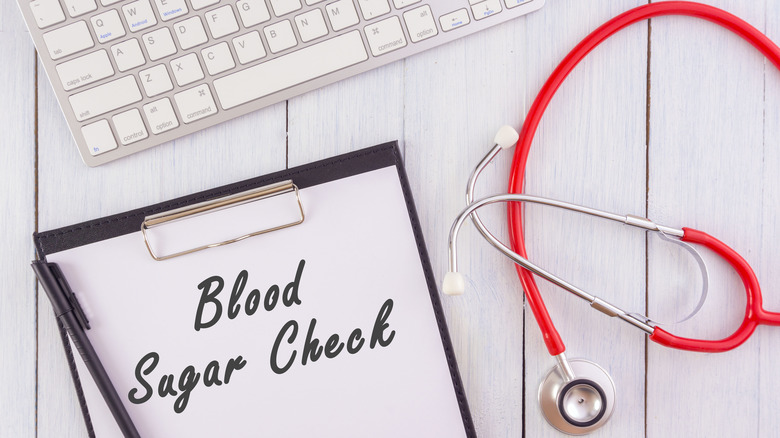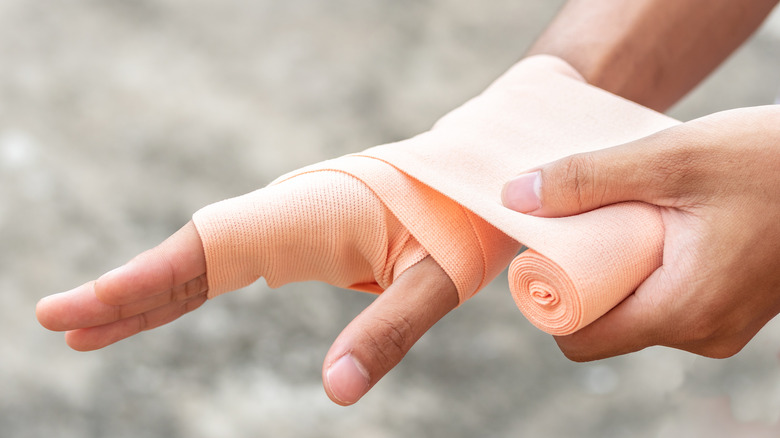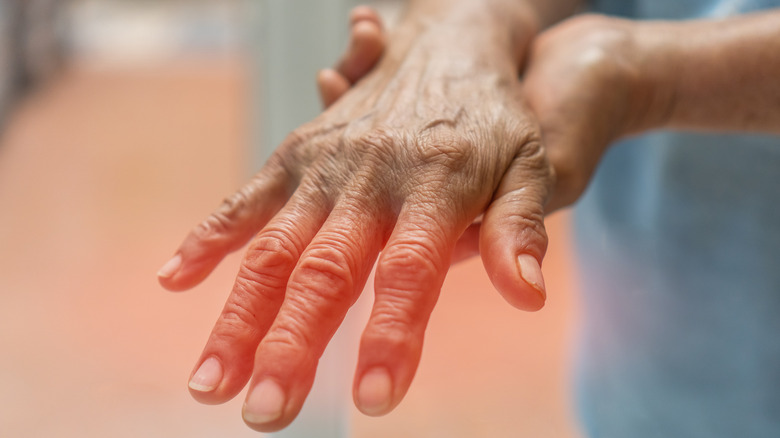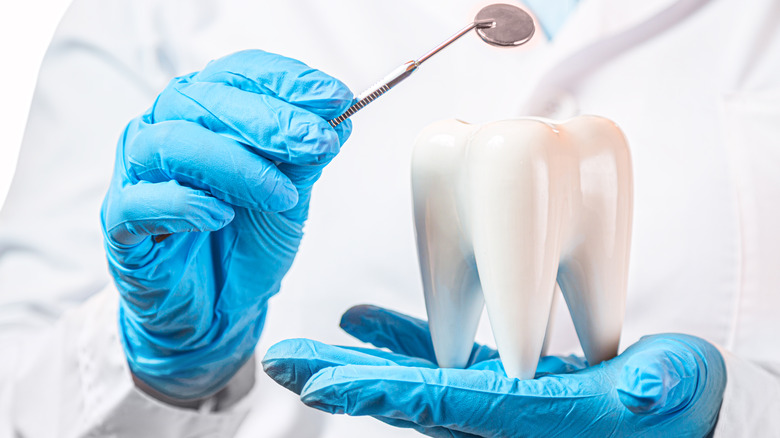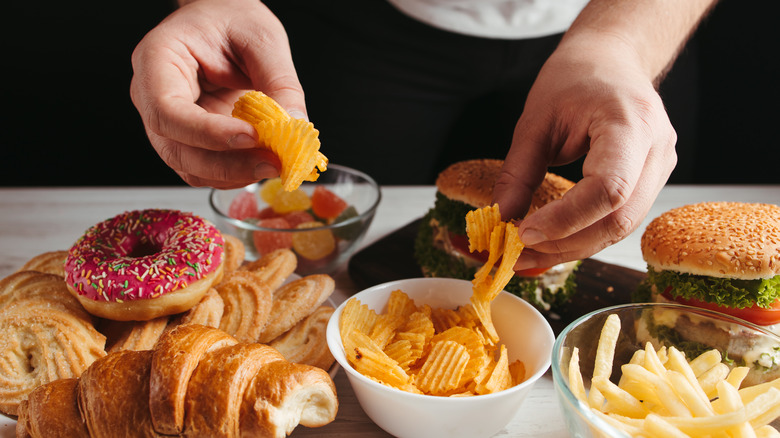14 Signs Your Blood Sugar Is Too High
It seems like we often hear about blood sugar and the regulation of it when talking about health. Blood sugar is often referenced in discussions about diabetes, and unfortunately, many people with diabetes are all too familiar with the implications of imbalanced blood sugar.
Diabetes comes in 2 forms: type 1, in which your pancreas isn't making the proper amount of insulin to regulate your blood sugar; and type 2, in which your body has developed insulin resistance. Self reports that around 21% of people who have diabetes do not know that they have it. More startlingly, they estimate that around 1 in every 3 adults has prediabetes, which can be a precursor to type 2 diabetes. Prediabetes is defined as having higher than average blood sugar, but not high enough to be diagnosed with diabetes.
However, if you do not have diabetes, detecting the signs of high blood sugar can be complicated. With so many people on the verge of developing diabetes, it is important to take stock of your own body and habits to the best of your abilities. Of course, ensuring that you have your annual physical and check in with your doctor regularly are great ways to learn if you have something deeper going on. If you are unsure about whether or not you have high blood sugar, here are some of the most common signs that you should be on the lookout for.
What causes high blood sugar?
What causes high blood sugar? Simply put, high blood sugar (also known as high blood glucose) happens when glucose builds up in our bloodstreams. In a healthy body, the pancreas secretes insulin, which regulates our blood sugar levels as the glucose moves into our cells and muscles for later use. Just eating a ton of sugary foods isn't enough to cause blood sugar imbalances. Your pancreas works hard to maintain your blood glucose levels within a pretty small range (via Self). This means that your pancreas secretes insulin, whether you eat 18 powdered donuts or 1 piece of licorice. Whatever is ingested is regulated, which helps the body function properly, despite less-than-stellar dietary choices on an occasional basis.
A disruption of this process causes high blood sugar. In some cases, your pancreas simply does not make enough or any insulin to even out your blood glucose. In other situations, high blood sugar can occur as a result of insulin resistance. Insulin resistance happens when the body loses the ability to process blood glucose and create energy. Your body will react to this by secreting more insulin, which ultimately leads to an increase in blood glucose (via WebMD).
Frequent urination
If you didn't indulge in "The Babysitter's Club" books in your youth, it is likely that "The Truth About Stacey" hasn't been swirling around your mind since then. For those of you who did, perhaps you are still haunted by the storyline of Stacey finding out that she has diabetes. If you're prone to overreactions, you might still get anxious over urinating more than once an hour, even if you chugged 3 cups of coffee and 3 Nalgene bottles full of water.
One of Stacey's telltale symptoms that led up to her diagnosis was frequent urination, and as it turns out, that is 1 of the more common signs of overly high blood sugar. This happens because if there is too much sugar in your blood, it affects your kidney function. Your kidneys try to rid themselves of the excess sugar, and with that, they end up pushing water out with it. Your body responds by needing to expel that liquid in the form of urine (via the Mayo Clinic). Excreting this much liquid makes way for other signs that your blood sugar is too high.
Increased thirst
There are many reasons why a person would have to urinate more frequently than normal or more frequently than other people. Some bladder irritation or more regular bathroom breaks after drinking a lot of liquids are all a part of being human and having a bladder. The flip side of increased urination as it relates to high blood sugar is dehydration, which can lead to excessive thirst. Unfortunately, thirst is another 1 of the most common signs of too-high blood glucose. Excessive thirst and dehydration are side effects of the increased urination caused by the kidneys' overcompensation for having too much blood sugar (via Self).
These 2 symptoms of high blood sugar work in tandem to create a seemingly endless and vicious cycle. Your body starts to feel thirsty as a result of dehydration, so you drink more water. The more water or other beverages that you drink, the more you'll have to urinate. The more frequently you urinate, the more dehydrated you'll become, and thus the more water you will need to drink.
Blurred vision
Excessive sugar intake has long been known as a factor that contributes to increased levels of inflammation within the body. Unfortunately, high blood sugar can influence your body in a truly holistic way, which includes having an effect on your eyes. If your blood sugar is too high, the lenses in your eyes can become inflamed. This inflammation can lead to acute blurred vision, but also to chronic vision issues.
Excessive blood sugar and the swelling caused by it can lead to cataracts, a condition in which the lenses of the eyes become permanently cloudy. Beyond that, long-term high blood sugar can lead to complications related to high blood pressure, as well as diabetes, which can lead to glaucoma. Glaucoma occurs when the blood vessels in your eyes become restricted, ultimately leading to inhibited vision. Finally, chronically high blood glucose can contribute to macular degeneration, a common condition that degrades your eyesight as you age (per WebMD).
Headaches
Headaches are an incredibly common occurrence when your blood sugar is imbalanced. Unlike many of the other symptoms, headaches can happen as a result of your blood sugar being too high or too low. The sugar that we consume affects the function of our brains and nervous systems. In fact, the glucose levels in your brain are more volatile than in any other part of your body. The peaks and valleys can cause headaches, and the hormones that react to sugar can also play a role.
In the case of hyperglycemia, which is the fancier way of saying "high blood sugar," you might experience a mild headache as an early symptom. This mild headache may intensify as your blood sugar rises after eating. The headache may also worsen if insulin is unable to regulate your levels of blood glucose. If you are suspicious that your headaches might be related to blood glucose imbalances, Healthline encourages you to contact your doctor. Doctors can run a battery of tests to help get to the root of the issue and potentially prevent further complications.
Fatigue
Fatigue is an insidious symptom that can signify a multitude of things. On the one hand, fatigue can occur as a result of staying up for an extra hour binge-watching "The Bachelor," but it could also signify a more serious medical condition. This is why it is important to view the body as a holistic entity instead of individual parts, as it can help pinpoint the causes of vague symptoms, such as fatigue.
Unfortunately, people who have diabetes are all too familiar with fatigue being 1 of the main side effects. In people who do not have diabetes, however, it can be 1 of the more omnipotent symptoms as well. The physiological mechanisms are complex, but the basics go like this; If your body experiences a huge spike in blood sugar levels, your body produces insulin to regulate it. If the secreted insulin is not enough or if the body is unable to produce it properly, the body resorts to pulling energy from fat. This creates a complicated chain of events that ultimately leads to a surplus of molecules that cannot be used correctly, which is what causes the fatigue (per Verywell Health).
While normal bouts of fatigue are part of the human experience, chronic fatigue is a reason to consult your doctor. This is especially true if you are experiencing long-term fatigue with other blood sugar-related symptoms.
Infections
As established, sugar is a major contributing source of bodily inflammation, which inhibits some of the body's immune function. If your body is constantly inflamed as a result of chronic hyperglycemia, your body's ability to fend off infections becomes significantly weaker. This can result in consistent, recurrent, or worse-than-average infections. In many cases, infections become more serious because the body is unable to defeat the initial infection (via Self).
One of the more common ailments that people with vaginas experience is recurrent yeast infections if they have diabetes and prediabetes. Since the kidneys release urine to expel as much excess blood glucose as possible, this is how the sugar ends up being passed. This ultimately means that sugar is moving through the parts of the body that harbor yeast. Yeast can proliferate when given sugar to feed off of, which is how yeast infections occur. Urinary tract infections (UTIs) are fairly common in people with diabetes and occur for the same reason, with the sugar passing through the urinary tract on its way out of the body (via PubMed).
Slower-than-average healing capacity
Slow wound healing is another somewhat subtle sign that your blood sugar is too high. High blood sugar affects many parts of our bodies, and our circulatory systems are no exception. Our circulatory system is responsible for pumping blood throughout our bodies. Blood carries oxygen and other nutrients that are crucial for wound healing. With this function somewhat inhibited as a result of high blood glucose, our bodies lose some of their wound-healing abilities (per the Mayo Clinic).
High levels of blood glucose can impact the flexibility and width of your arteries. This makes it harder for the blood to move freely throughout your body, thus degrading the functionality of the circulatory system. Specifically, wounds or sores on your extremities might take a long time to heal. This is, of course, because they are the farthest away from the blood-rich mecca of the center of the body. As a result, they receive less oxygen and nutrients with inhibited blood circulation (via Wound Care Clinic).
Nerve tingling
Neuropathy is loosely defined as damage to nerve bundles that results in tingling, numbing, or buzzing sensations. These sensations are most commonly felt throughout the hands and feet. However, according to Mayo Clinic, they also occur throughout your gastrointestinal and urinary tracts. Diabetic neuropathy is unfortunately common, but nerve-tingling can be a sign of high blood sugar, even if you do not have diabetes.
If you live with elevated blood glucose levels for years, it is likely that your nerves might become damaged and malfunction as a result. Neuropathy can be caused by complications that are unrelated to blood glucose, but it is exceptionally important to take stock of these sensations if you are experiencing them in conjunction with other signs of high blood sugar.
While some of the science to confirm why diabetic neuropathy is a thing is lacking, researchers have been able to nail down a few main risk factors. These risk factors are heavily linked to high blood glucose levels and include kidney disease and obesity, in addition to diabetes. Furthermore, smoking increases the risk of developing any of the varied types of neuropathy (via the Mayo Clinic).
Dental complications
Since glucose is sugar on a fundamental level, it has the tendency to wreak havoc on our bodies, especially in excess. That being said, it also feeds harmful bacteria. When our bodies become overwhelmed, they have trouble regulating the bacteria, and an overgrowth (i.e., a yeast infection) can develop (via Self). We have a ton of bacteria in our mouths, and our sugar consumption can impact our oral health in epic ways.
Glucose exists in our saliva and in our mouths, and when it co-mingles with the bacteria that also live in there, chaos ensues. By chaos, we mean that plaque can proliferate and lead to issues, such as tooth decay, cavities, and bad breath. Many complications cannot be solved by upping your oral hygiene game once they start to spiral. To prevent these complications, the Mayo Clinic recommends committing to dental care. This includes regular brushing and flossing, of course. However, this type of care extends into being hyper-aware of the initial signs of gum disease. It's also important to inform your dentist about your high blood sugar if you have it.
Odd hunger
"Odd hunger" is not how we describe your 9 p.m. hankering for potato chips while watching Netflix. Healthline defines polyphagia as "the medical term for excessive or extreme hunger." It is not the same as feeling hungry after engaging in physical activity, as your hunger level typically returns to normal after eating in those instances. Polyphagia will not go away if you consume more food.
Polyphagia is another early sign of diabetes. As we know, without proper insulin function, the body is unable to remove glucose from the blood to convert it into usable energy. The kidneys do their best to flush the sugar from your blood in an attempt to recalibrate toward equilibrium. This can leave your cells desperate for the energy they want to gain from your food, so they then send the signal to your brain to eat more. As this cycle continues, your body will resort to finding other sources of fuel, generally from fat, which can lead to weight loss. No matter which way you slice it, an excessive appetite coupled with weight loss is a sign that something inside is malfunctioning (via Everyday Health).
Skin changes
As is the case with many other signs of high blood sugar, skin changes on their own might not be cause for concern. After all, our skin naturally changes as the weather outside does, as our laundry detergents change, and as we upgrade our exercise routines. However, if extreme skin changes are observed in tandem with other signs of high blood glucose, it might be time to check in with your doctor.
In people who have prediabetes, blisters, dryness, itchiness, and other abnormalities can become prominent. Additionally, skin tags, which are extra, protruding pieces of skin, can begin to develop. Skin tags are relatively common in people with diabetes who are working on weight management. Dark, dense areas of comparatively soft skin can form on the hands, neck, face, and armpits, and can often be an outward sign of insulin resistance. Much like some of the other warning signs, it is important to take notice of what some might perceive as subtle signs in an attempt to stay healthy as you age (via Everyday Health).

